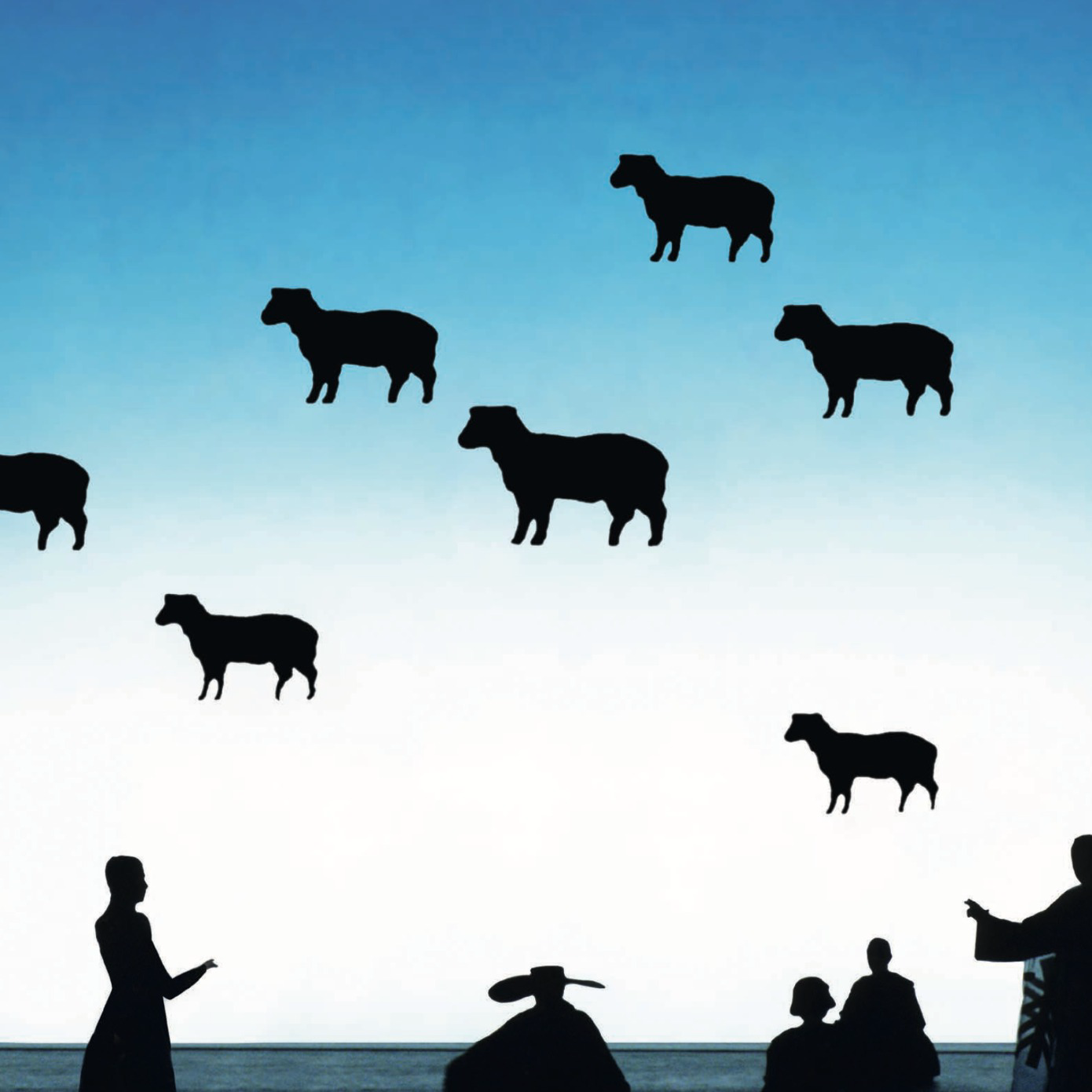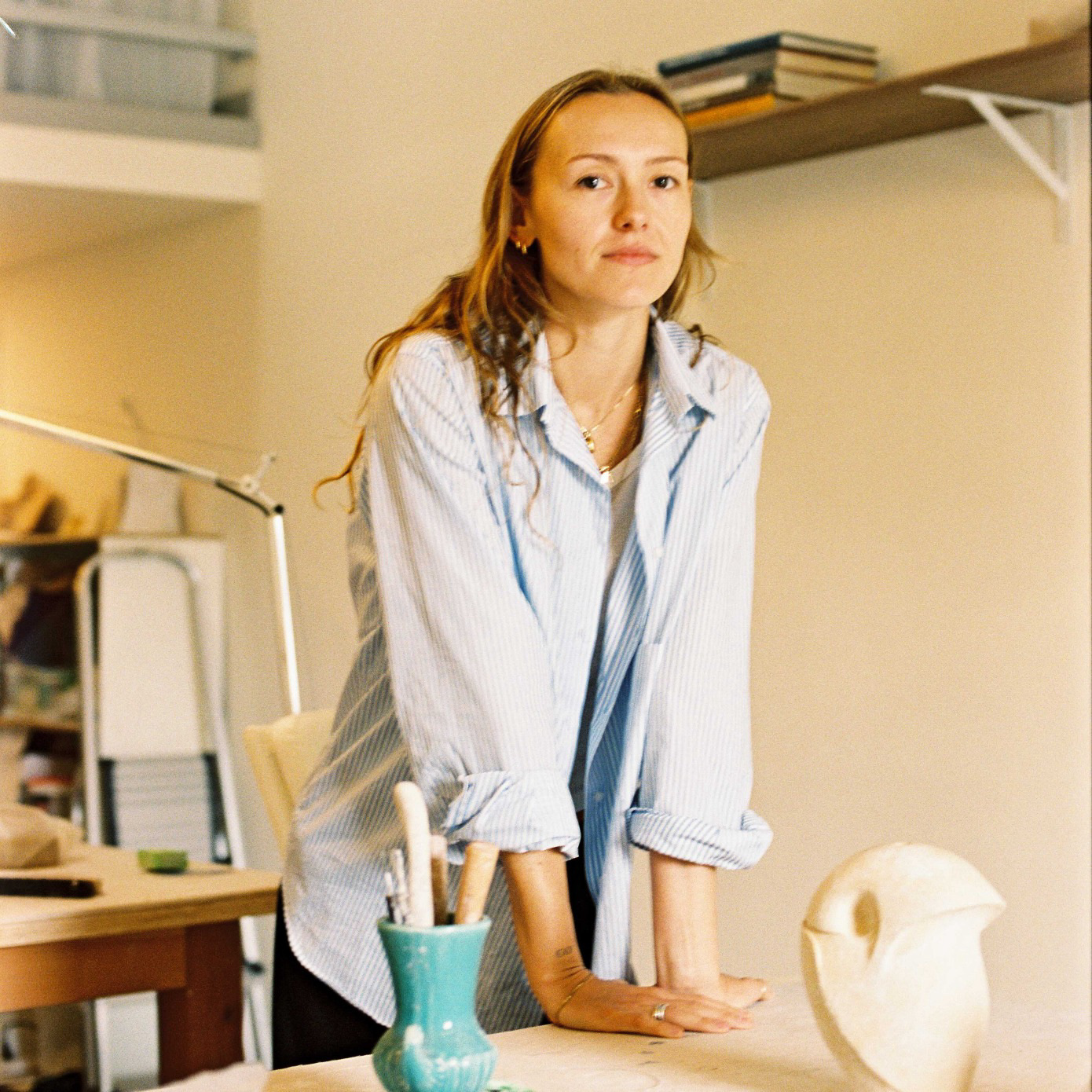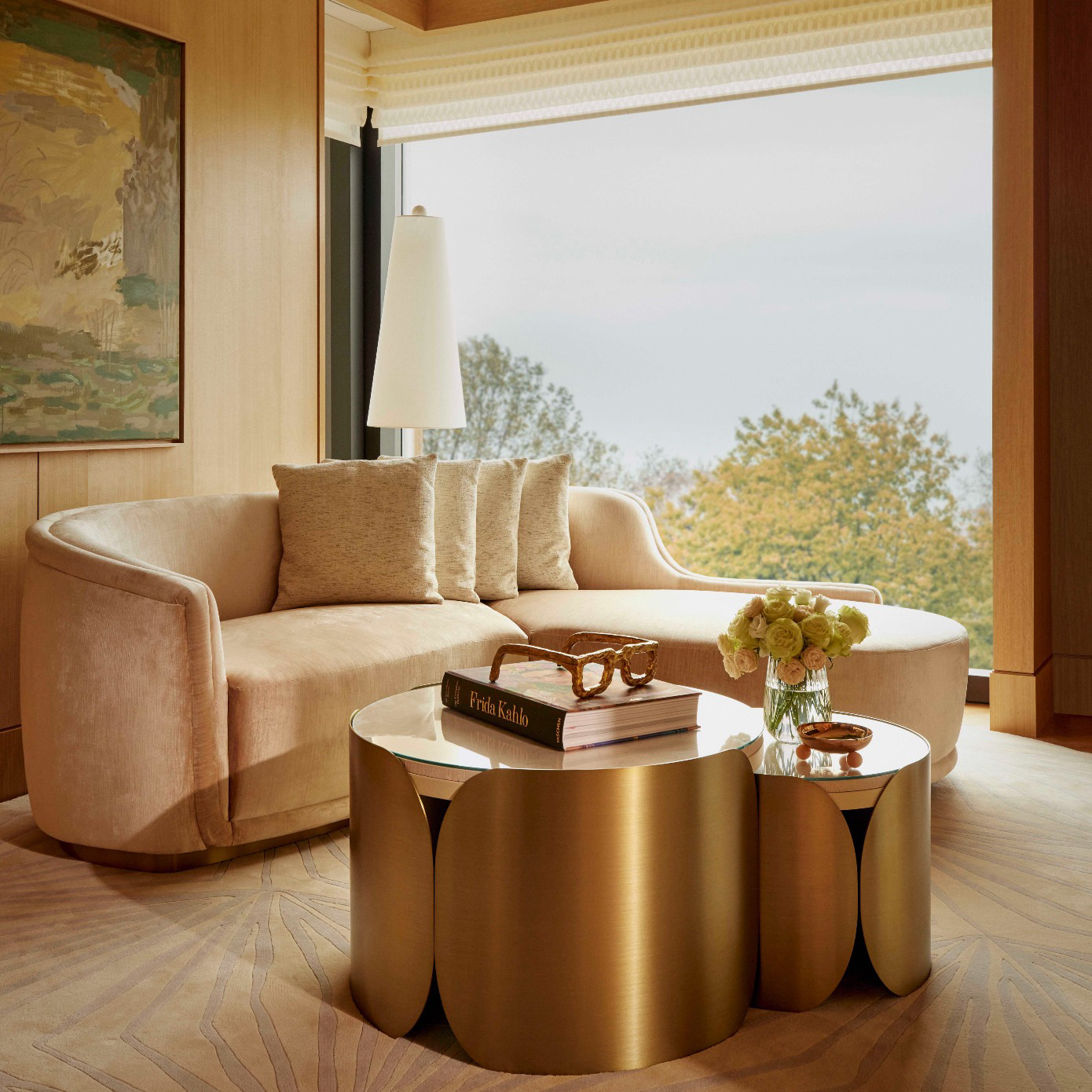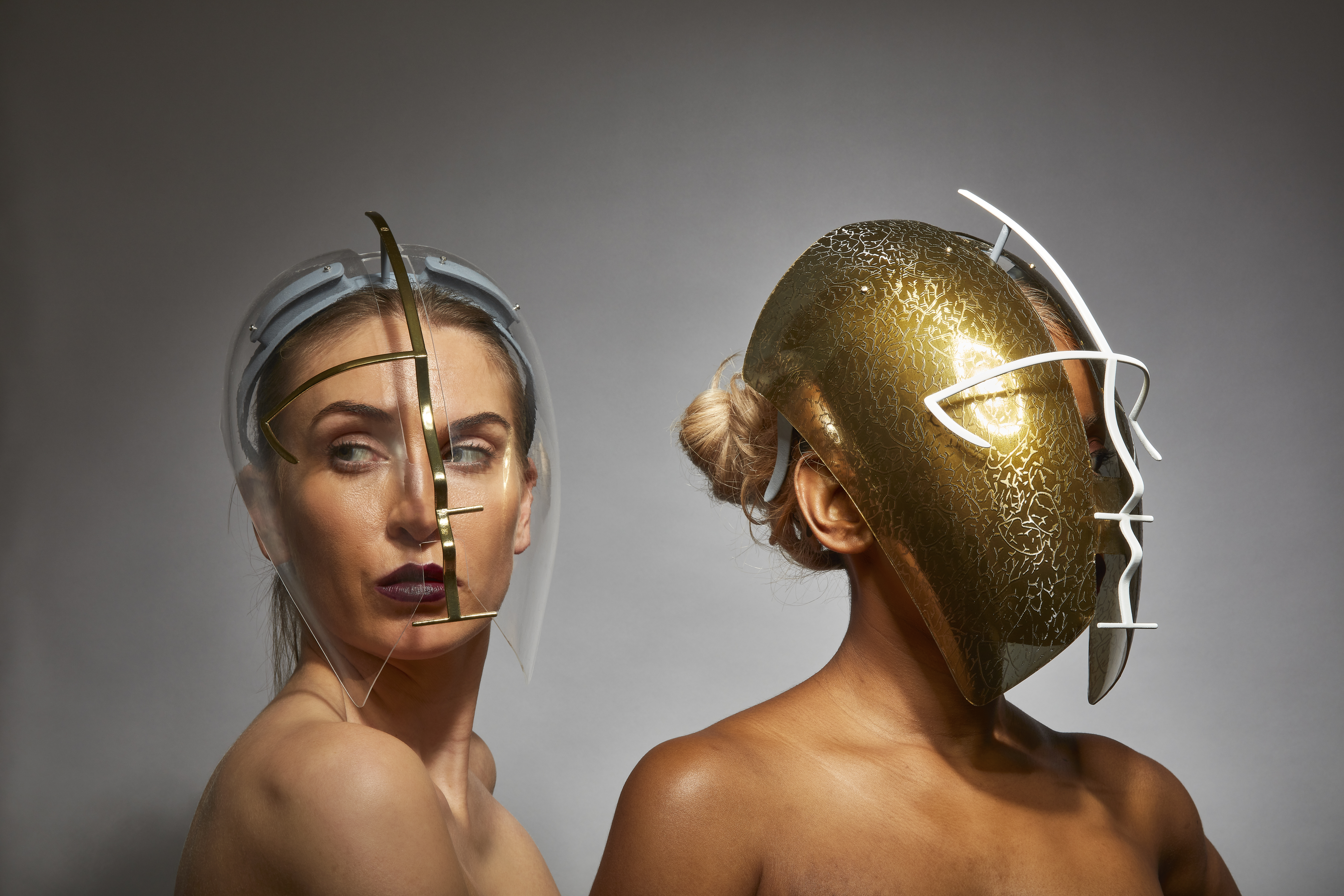
This year, the face mask became ubiquitous. Across the globe, citizens have been thrown headfirst into an understanding of its functionality during the pandemic. Although its current connotation is one of health and safety, a new conceptual collaboration by designers Chrissa Amuah and Tosin Oshinowo for Lexus at Design Miami considers the traditional origins of face coverings. The duo, Oshinowo a Lagos-based architect and product designer and Amuah a London-based textile and furniture designer, have designed “Freedom to Move,” a collection of three intricate headpieces inspired by African decorative traditions and mythology as well as global craftsmanship and hospitality customs.
Collaborating together in Lagos, Amuah and Oshinowo sought to “bring joy, celebration and curiosity” to the protection object, thinking about the works as fashion pieces that “marry old and new.” Titled Egaro, Pioneer Futures and Ògún, the headpieces are made with a combination of handcraft, hand-detailing that engaged artisans and contemporary advanced technologies. Reflecting our contemporary globalism, each has design elements that draw from aesthetic vernaculars in Niger, Nigeria and Benin, incorporates Japanese principles maintained by Lexus and contains a transparent panel that mitigates the mouth and nose concealment of a medical mask. “Thinking about Africa as the birthplace of mankind, we then expanded out to explore multiple cultures,” say the designers in a statement. Ògún, for example, is named for the Yoruba god of metal, technology and war and was created using the lost wax method perfected by Benin sculptors by 1200 BC. The designers engaged a fifth generation bronze caster in Benin City, Nigeria to create the piece, creating a 3D-printed mold that was then hand-cast in bronze and brass. Taking its name from the site where iron technology was discovered to have been invented in Niger 5,000 years ago, Egaro has a laser etched pattern that references African fractals.
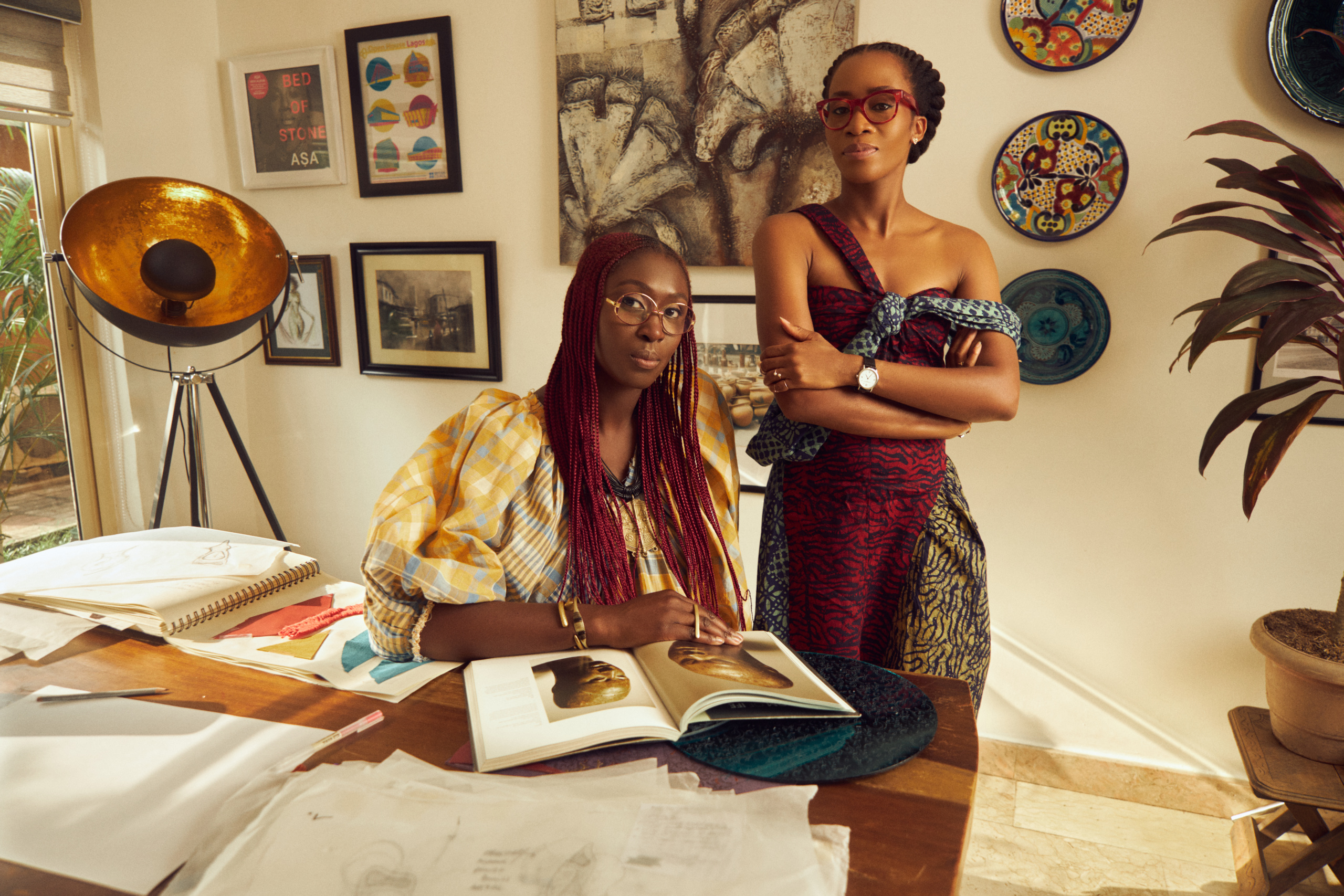
As evidenced, the heavily-researched works are rooted in an exploration of the cultural importance of head protection, both as adornment and for functional reasons. The Pioneer Futures piece skews toward decorative traditions, hand-beaded with coral and teal and northern Nigerian tinko embroidery patterns. During the design process, Amuah and Oshinowo discovered that while coral is a traditional decoration in the nation, it is actually not a native material.
In their daily lives, both designers head practices that celebrate their respective African heritages. Amuah is Ghanaian and runs design firm AMWA Designs and a digital platform called Africa By Design that highlights creatives from sub-Saharan Africa. Oshinowo is Nigerian and uses her work to “elevate and modernize my culture,” she says, through architecture firm CM Design Atelier and product brand Ilé Ilà. Presented digitally and through a three-part documentary series, this collaborative project is intended, too, to have a global reach. “Thinking about the masks that we all now wear for daily protection, we wanted to take a step further and consider how we cannot only protect ourselves, but use this opportunity to celebrate our joint humanity,” they say. “If we must wear masks, then let them be glorious!”

